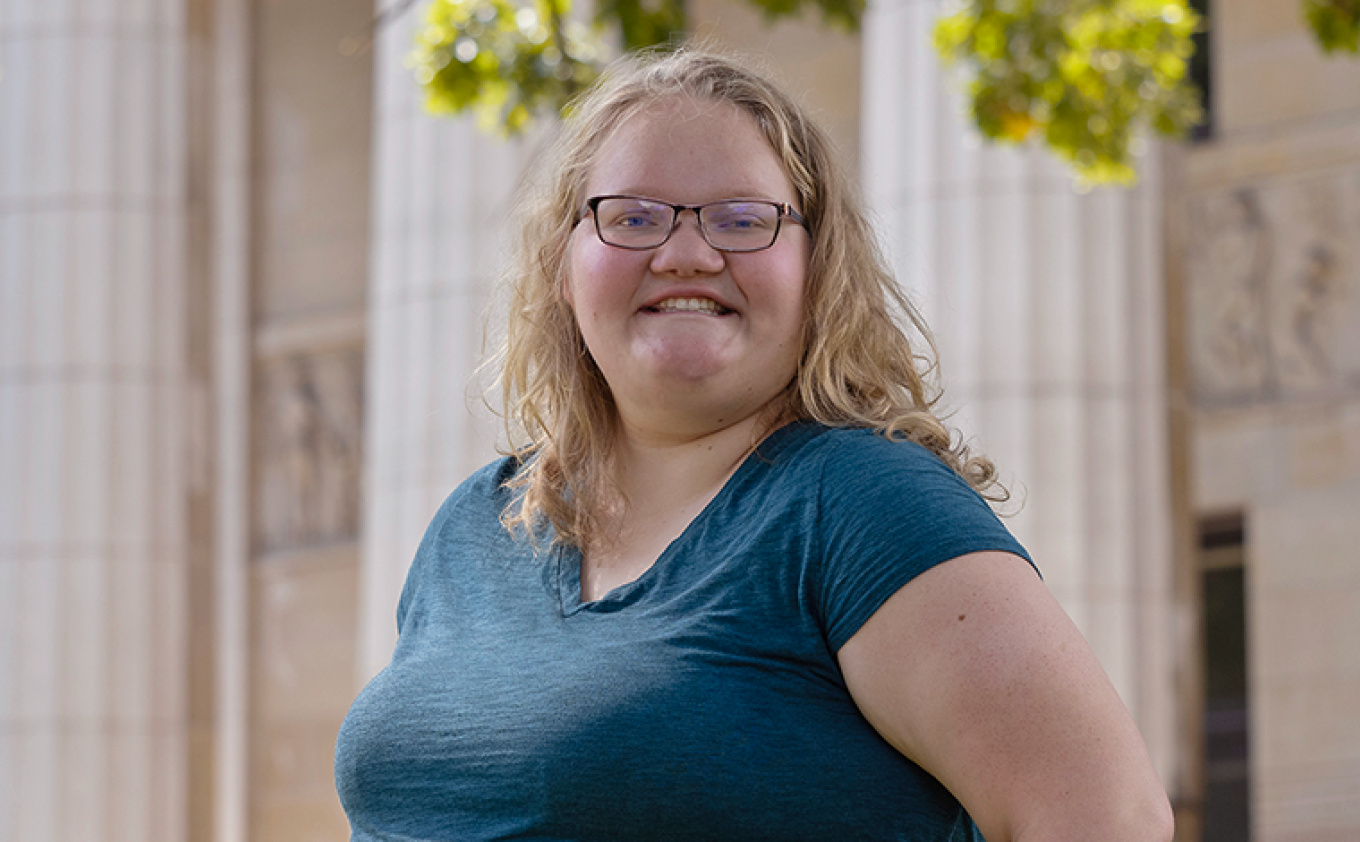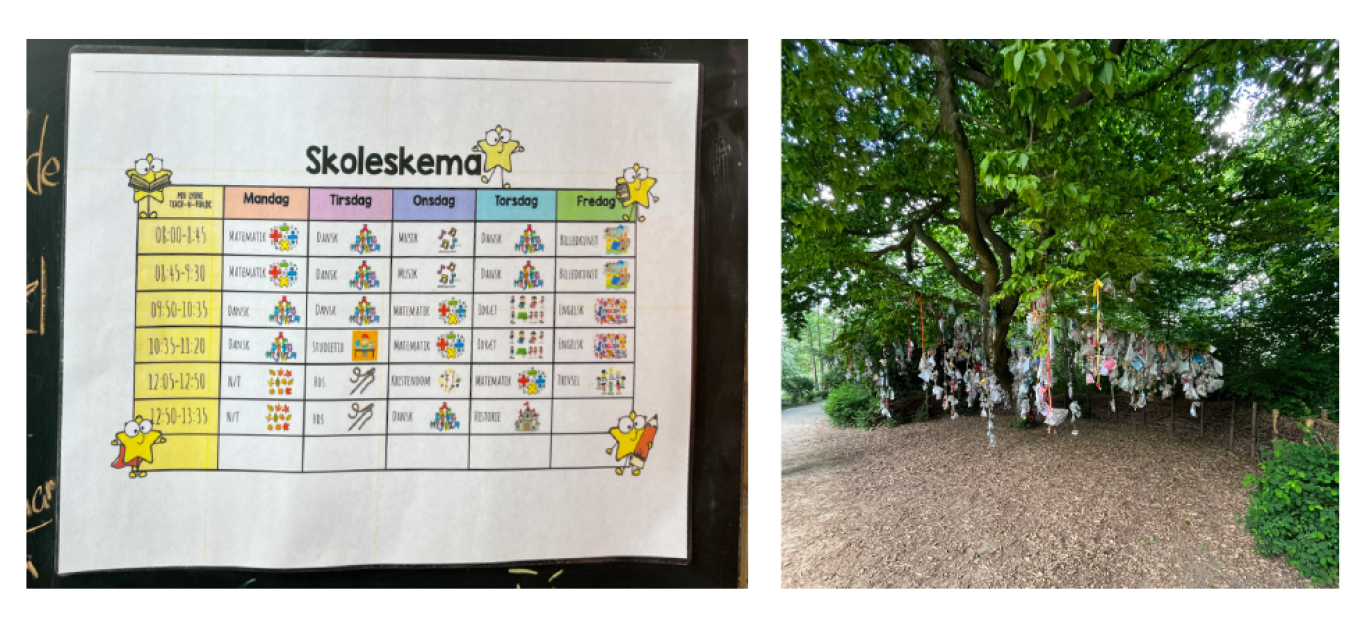2024 Fall

It takes a community
SUPPORT SYSTEM NETWORKS HELP SPECIAL EDUCATION STUDENT THRIVE
For most of my life, I have felt like an outsider looking in. I have battled with anxiety and depression, come from a family of divorced parents, and was bullied throughout school. There have been many times when I have tried to fit in but found that doing so makes me lose who I truly am. Having personally experienced feeling different for most of my life, I think I was destined for a career working with people who may be viewed similarly through society’s eyes. Ever since I can remember, I’ve wanted to be a special education teacher and make an impact on children’s lives. Growing up a Minnesota Gopher fan, the University of Minnesota (U of M) was always a school I was interested in. I was sold on the University once I learned about its highly nationally rated special education program and how I could graduate with my teacher license as an Academic Behavioral Strategist (ABS) in four years. Reflecting on my time in the U of M special education program, a few key highlights come to mind, including the ability to build close relationships within the cohort, the numerous opportunities offered, and the great support systems available.
Being a part of such a big school, I was worried about making friends and finding a community. It turns out my worries were unfounded. While the size of the campus can be daunting at first, a unique characteristic of the special education program is its small class sizes. With these small class sizes come many opportunities to work with individuals consistently and build rapport with one another. As you progress through the program, you start to see many familiar faces and begin to know your peers on a deeper level, which helps to build connections that can turn into lifelong friendships.
Similarly, the opportunities offered to students in this program help build a sense of community and belonging. I’ve had the chance to be a part of the U of M chapter of the Student Council for Exceptional Children (SCEC), a student group dedicated to advocating for better educational outcomes for students and youth with disabilities, talents, and gifts. Through being in this group, not only have I gained more knowledge about the field of special education and how I can best support my future students, but I also met some amazing and passionate people who helped me enjoy my college experience and grow. While I enjoyed being a member of SCEC, nothing was better than when I was given the opportunity to study abroad in Copenhagen, Denmark. This great experience, which was the first of its kind for this program, helped me grow both academically and personally. Being a person who doesn’t like change and who lives with high anxiety, I was very hesitant to commit to a three-week trip thousands of miles away from home, but I am so happy and thankful that I did.
It was transformational to be immersed in a different culture and to see the many differences between Denmark and Minnesota school systems. Some of these differences in Denmark included special education resources and supports being at a more beginning stage, an extreme amount of time spent having free time outside, and the interpersonal dynamic between teachers and students. In my two weeks in a Danish classroom, we rode the train to a circus, a time in which the students were silent and behaved much more maturely than their age, and my cooperating teacher decided out of the blue to take his class to a grocery store and get them Popsicles. This trip helped me find my independence and a confidence in myself that I didn’t have before.

Left: From Ganyo’s trip to Denmark, the Skoleskema, the weekly schedule for the Danish elementary school classroom she was in for her field experience placement. Right: The Suttetræet, or Pacifier Tree, in Copenhagen’s Frederiksberg Gardens where parents take their children to discard their pacifier(s) as a rite of passage into maturing as an individual. Many children also include an attached “goodbye” note. This Scandinavian tradition is comparable to the tooth fairy or Santa Claus in America, Ganyo says (Photos courtesy of Hannah Ganyo)

Lastly, the support I’ve received from my advisors and professors in this program has helped me get where I am today. Whether it was helping me through the process of taking a leave of absence during my freshman year due to mental health, supporting me through my anxieties while studying abroad, or supporting me through rescheduling my student teaching due to health complications and making sure I was in a good financial situation for when I can student teach, the University faculty has been there for me when I needed it most. I am grateful that my advisor, Laura Paczkowski, is always one Google chat away when I have a question or need to talk about something. My other advisor, Rita Richardson, has been a great source of support throughout my back pain issues this past semester and helped me be able to walk across the commencement stage this past May even though I didn’t see it as a possibility.
A few years ago, I could’ve never imagined graduating from college, let alone graduating with high honors. While I acknowledge that I did a lot of work over these years to reach these accomplishments, I couldn’t have done it alone. I have lived the popular phenomenon “it takes a community.” Throughout my years at the U of M, I was blessed to meet some amazing friends, professors, and staff within the special education program. There have been many times when these individuals believed in me when I didn’t, and I will forever be grateful for their confidence in me and for pushing me to become the best me possible. Without them, I wouldn’t have had the best three weeks in Copenhagen, met some of my lifelong friends, or stepped out of my comfort zone. My mission as a future educator is to help my students believe that while others may view them as different, they are unique, loved, and valued, no matter what. Thanks to the special education program at the U of M, I have the knowledge and skills to achieve this and much more.
Hannah Ganyo is a senior majoring in special education and minoring in developmental psychology. She plans on student teaching this fall before becoming an elementary special education teacher.
(Ganyo photograph by Greg Helgeson)